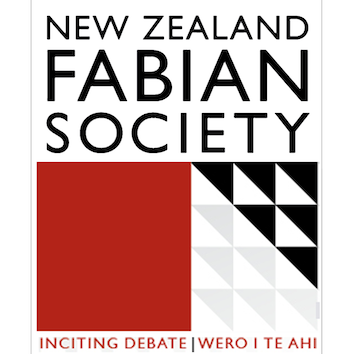Nicky Hager, Arama Rata and Marco de Jong will discuss the above topic on Thursday 13 July in Wellington at 2/57 Willis Street, starting at 5:30pm. They ask what New Zealand stands to lose by abandoning a Pacific-led and independent foreign policy in favour of colonial associations and by choosing defence over diplomacy. Marco de Jong is a Samoan New Zealander, and a Pacific historian. He has recently completed a doctorate at the University of Oxford on the history of the environmental movement in the Pacific Islands with a particular focus on anti-nuclearism and climate change. Outside of research, he has worked in civil society organisations and independent think-tanks advocating for a progressive, demilitarised foreign policy for Aotearoa to advance a Free and Independent Pacific. Across this work, and in the context of entwined ecological and political crises, his firm belief is that there is power in stories which demonstrate Indigenous peoples' commitment to environmental justice in perpetuity. Dr Arama Rata belongs to Ngāruahine, Taranaki Iwi, and Ngāti Maniapoto, She is an independent researcher with current projects focused on Māori sovereignty, Pacific regionalism, anti-racism, and liberatory pedagogies. She is co-director of Te Kuaka, a group advocating for independent, progressive foreign policy. Nicky Hager ONZM is an investigative journalist who has been writing about geopolitics, intelligence ad defence matters since his 1996 publication of Secret Powers on the GCSB. In 2019 following an inquiry the SIS was told to apologise to him for unlawfully acquiring months of call logs from his phone in relation to his investigation into Defence Force activities in Iraq published in Hit and Run.
Featured
-
Slides from Craig Renney's Auckland Presentation
These are available here
-
Human Rights, Environment Obligations, and Ethical Investment: Aotearoa New Zealand is Going Down the Wrong Path
Dr Robert Howell
1 Introduction and Summary
A considerable portion of the world’s investments are unethical in that they have inadequate regard for the welfare of people and/or the planet. They invest in companies that abuse workers’ or other stakeholders rights. Their activities destroy our environment. Very few companies are fully fossil-free, or operate within ecological boundaries. One of the reasons for this is that the term ethical investing is defined by such unvalidated concepts as ESG, or responsible.
-
Should the Reserve Bank target unemployment as well as inflation? Will the new government abolish the dual mandate?
Back in 1989 – near the end of the fourth Labour government – the inflation-busting Reserve Bank Act was passed. Labour has shifted well away from the Rogernomics of that decade, and in 2021 Grant Robertson added maximum sustainable employment to the bank’s mandate - with the support of coalition partner NZ First.
Our Reserve Bank joined a powerful grouping of central banks that have dual targets, including the US Federal Reserve, the Reserve Bank of Australia, the Bank of Canada, the Bank of England and the European Central Bank.
Going into the 2023 election, National and Act committed to a return to the 1989 objective. Will they take us out of the mainstream and into a straitjacket rather than a life-jacket? And how does it square with their stated aim of getting people off the dole and back to work?
Coverage can be found here
-
The next three years – the job ahead for Labour, Greens and Te Pāti Māori
The Fabians had a session on Nov 14th reflecting on the elections. Our panel of Simon Wilson, Senior Writer at NZ Herald, Bridie Witton, Stuff Press Gallery Reporter and Ollie Neas, freelance writer used the election results as a springboard to target some of the key issues for Labour, the Greens and Te Pāti Māori as they head into opposition.
Coverage can be found here
